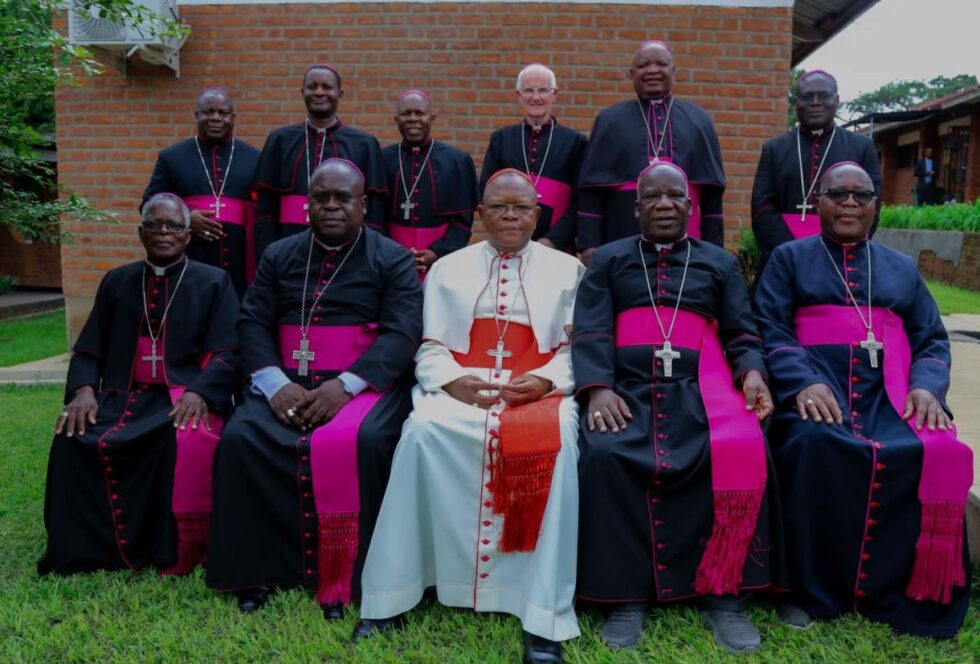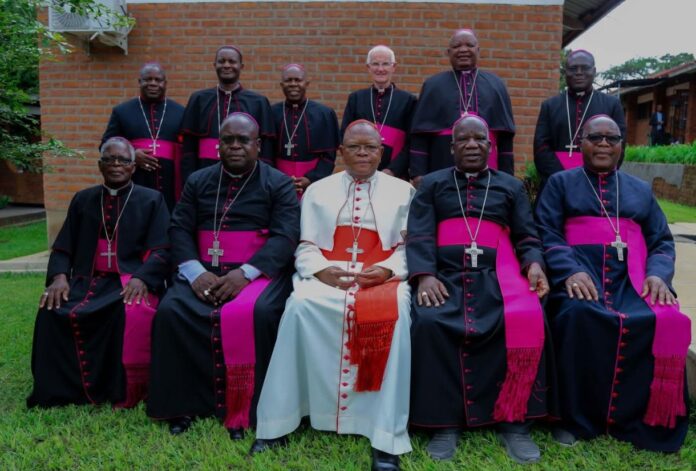By Jones Gadama
In Malawi, the Catholic Church has emerged as a significant player in the political landscape, often taking a stand against government policies and actions. This phenomenon raises important questions about the nature of religious engagement in politics, the historical context of the Catholic Church in Malawi, and the comparative silence of other religious groups, particularly the Muslim community. This analysis seeks to explore the reasons behind the Catholic Church’s active political involvement, the implications of its pastoral letters, and the broader context of religious engagement in governance in Malawi.
The Catholic Church in Malawi has a long-standing tradition of social teaching and moral advocacy, rooted in its theological framework that emphasizes the dignity of the human person, the common good, and the preferential option for the poor. These principles compel the Church to speak out against injustices and to hold the government accountable for its actions. The Church’s engagement in political discourse is not merely a reaction to specific events but is deeply embedded in its mission to promote social justice and moral integrity. This mission is articulated through pastoral letters, which serve as a platform for the bishops to address pressing social and political issues, often critiquing government policies that they perceive as detrimental to the welfare of the people.

One of the key reasons for the Catholic Church’s active political stance is its hierarchical structure, which allows for a unified voice on critical issues. The bishops, as leaders of the Church, are seen as moral authorities, and their pastoral letters carry significant weight in public discourse. This centralized leadership enables the Church to respond swiftly and decisively to political developments, making it a formidable force in advocating for social justice. In contrast, other religious groups, such as the Muslim community, may lack a similar hierarchical structure or may prioritize different aspects of their faith, leading to a more subdued political presence.
The historical context of the Catholic Church in Malawi also plays a crucial role in its political engagement. The Church has been a significant player in the country’s history, particularly during the struggle for independence and the subsequent fight against authoritarian regimes. The legacy of this involvement has shaped the Church’s identity as a defender of human rights and a voice for the marginalized. This historical backdrop provides a foundation for the Church’s current political activism, as it continues to advocate for democratic governance and social justice in a country that has faced numerous challenges, including corruption, poverty, and human rights abuses.
Moreover, the Catholic Church’s educational and health institutions have positioned it as a key player in the social fabric of Malawi. With a vast network of schools, hospitals, and community programs, the Church has established itself as a provider of essential services, earning the trust and respect of the population. This social capital enhances the Church’s credibility when it speaks out on political issues, as it is viewed as an institution that genuinely cares for the well-being of the people. The Church’s involvement in social services also allows it to gather firsthand information about the challenges faced by ordinary citizens, further informing its political stance.
In contrast, the Muslim community in Malawi has historically been less vocal in political matters. Several factors contribute to this relative silence. Firstly, the Muslim community is smaller in number compared to the Catholic population, which may limit its influence in the broader political discourse. Additionally, the Muslim community in Malawi has often focused on internal community issues, such as education and social welfare, rather than engaging directly with the political system. This inward focus may stem from a desire to maintain unity within the community and avoid potential divisions that could arise from political disagreements.
Furthermore, the Muslim community in Malawi may also be influenced by the broader socio-political context, where religious identity can be a sensitive issue. In a country where Christianity is the dominant religion, Muslims may feel marginalized or hesitant to engage in political discourse for fear of backlash or discrimination. This dynamic can create a climate of caution, where the community prioritizes its internal cohesion over external political engagement. As a result, the Muslim community has not developed a tradition of issuing public statements or letters that critique government actions, unlike the Catholic Church.
The Catholic Church’s willingness to engage in political discourse can also be attributed to its commitment to the principle of the common good. The Church teaches that the state has a moral obligation to promote the welfare of all its citizens, particularly the most vulnerable. When the government fails to uphold this responsibility, the Church feels compelled to intervene and advocate for change. This moral imperative is reflected in the pastoral letters issued by the bishops, which often highlight issues such as corruption, human rights abuses, and social inequality. By addressing these issues, the Church seeks to hold the government accountable and encourage a more just and equitable society.
The impact of the Catholic Church’s political engagement is evident in the public response to its pastoral letters. These letters often resonate with the population, as they articulate the frustrations and concerns of ordinary citizens. The Church’s moral authority lends credibility to its critiques, and many people view the bishops as champions of social justice. This connection between the Church and the people reinforces the Church’s role as a key player in the political landscape, as it mobilizes public opinion and encourages civic engagement.
However, the Catholic Church’s political involvement is not without challenges. The Church faces criticism from various quarters, including government officials who may perceive its critiques as interference in state affairs. Additionally, there are concerns about the potential for politicization of the Church, where its moral authority could be undermined by perceived partisan alignment. The Church must navigate these challenges carefully, balancing its prophetic voice with the need to maintain its credibility and integrity as a religious institution.
In conclusion, the Catholic Church’s active engagement in political discourse in Malawi is rooted in its theological principles, historical context, and social mission. The Church’s hierarchical structure and established credibility as a provider of social services enable it to speak out on critical issues and hold the government accountable. In contrast, the relative silence of the Muslim community can be attributed to its smaller size, internal focus, and the socio-political dynamics of the country. As Malawi continues to grapple with challenges related to governance and social justice, the role of the Catholic Church as a moral voice in the political arena remains crucial. Its pastoral letters serve not only as critiques of government actions but also as calls to action for the entire society, urging a collective commitment to the common good and the promotion of human dignity. The ongoing dialogue between faith and politics in Malawi will undoubtedly shape the future of the nation, as religious institutions continue to navigate their roles in an ever-evolving political landscape.



